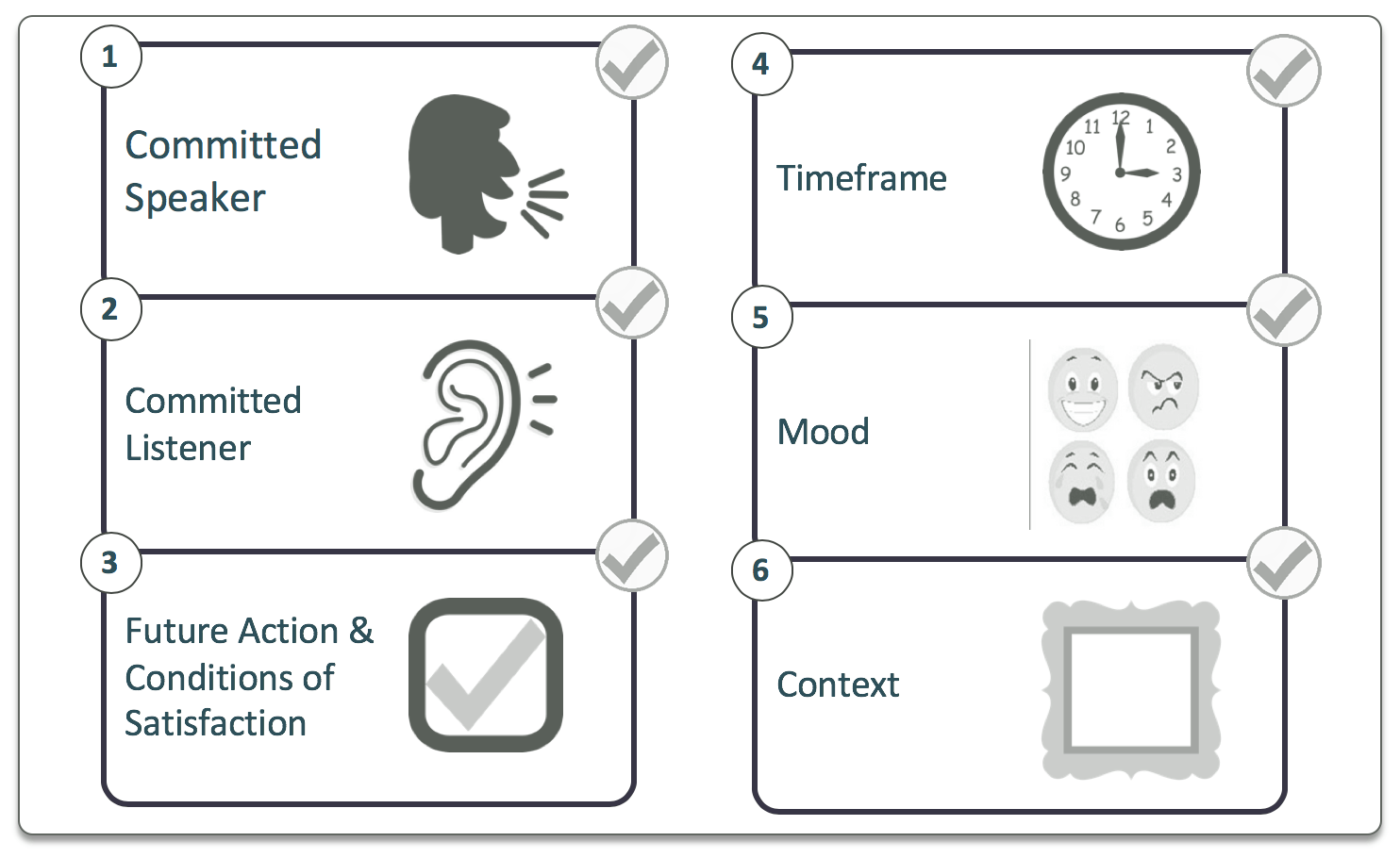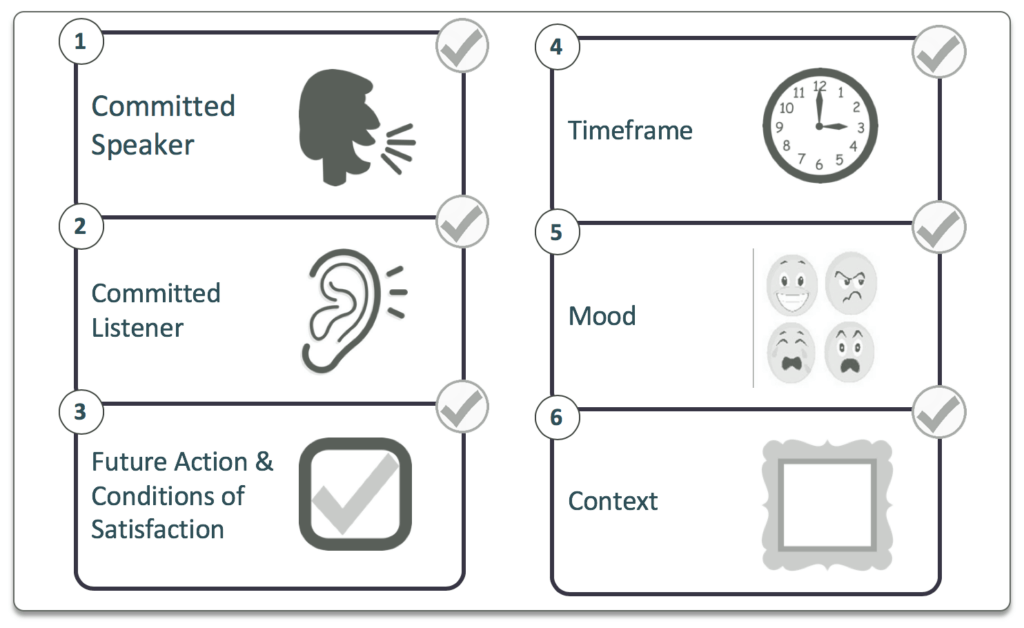

SOARing with CEEK: Session 6, Declarations, Requests, Offers, and Promises
Facebook
Twitter
LinkedIn
WhatsApp
CEEK continues with our cohort of SOAR leaders. Based on the book, Language and the Pursuit of Leadership Excellence: How Extraordinary Leaders Build Relationships, Shape Culture and Drive Breakthrough Results by Chalmers Brothers and Vinay Kumar, Jennifer Hughes is guiding 12 industry leaders on a journey of self-discovery. Our participants are using the power of language and conversations as primary tools to address concerns and achieve their desired results at work and in their personal lives.
Session 5 focused on the first two speech acts, Assertions and Assessments. Session 6 picks up with the next four speech acts: Declarations, Requests, Offers, and Promises. For those of us seeking significant changes in our lives, whether personally or professionally or both, an increased competency in these speech acts, along with awareness of consequences (Results) associated with each, will prove significant growth. Learning is required! We’ll focus on Requests here. If you are interested in Declarations, Offers, and Promises, check our website for availability of our next cohort!
What goes into an effective request?
A lot! Let’s break it down:

- Committed Speaker. A committed speaker is someone who does whatever it takes to have a committed listener in front of them. This means not throwing out a request as you are walking by someone in the hallway. Instead, a committed speaker would say, “Mary – I need to talk to you about the event next month. Can you let me know when you have 30 minutes to discuss this as I have a request I want to make?”
- Committed Listener. A committed listener makes eye contact, are fully present and aware, and you can tell from their body language that they are paying attention to what you are requesting. As the committed speaker, you might notice if your listener isn’t listening which means it may not be the right time to make the request. Be sure to schedule time with them when they can be present, aware, and focused.
- Future Action & Conditions of Satisfaction. If you are not getting the results you want when making requests of others, it may be because you are making vague or ambiguous requests. Be explicit in your future action and conditions of satisfaction. If you need a report to look a specific way and it’s the first time you are requesting the report, be explicit with those details. Help your listener understand what you need so they can effectively meet your request.
- Timeframe. So often, we use words like close of business, as soon as possible, at your earliest conventions, soon, promptly, etc. But what do these mean? Close of business for you might be a very different timeframe than what I think close of business means. You likely know when you need the request completed so articulate that. And leave it up to your listener to let you know if they can’t meet that timeframe (though it would be helpful to ask them if they can meet it so they don’t feel it is a directive).
- Mood. You can have the perfect request but if the mood is wrong, it is still a bad request. Our mood impacts how we interpret requests. Often, how we say things is more important that the words we use. Be in tune with the mood of your listener and take steps to create a mood that is conducive to what you are trying to accomplish. If you know your listener just came from an intense meeting that changed the trajectory of their work for the next 6 months, they likely aren’t in the right mood to receive your request. Wait until they are in a better space and mood to have the conversation.
- Context. So often, we make requests without providing our listener with the why and they don’t fully understand how this request fits in to the bigger picture. With context, we give the listener some background and provide them with information about where we are coming from. For example, I might tell my new hire, “I’m going to give you a lot of specifics about what I need from you and how it’s important to the organization. I don’t want it to feel like I’m micromanaging you; however, I want you to feel equipped with enough information about what we need you to do and why it’s important so that you understand how important your role is and how your work fits in.”
Get better Results with better requests!
Interested in learning more about SOAR and how we listen? The full list of sessions is available on our website and Jennifer will be sharing more about each session here on the blog. Follow this space to learn more and watch out for availability of our next cohort!



